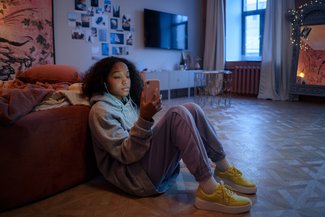
School Exclusions: 4 Ways Girls in Education Are Being Let Down
Read our blog to learn four ways girls in education are currently being let down and the changes that need to be made.

Agenda Alliance’s work aims to evidence and change the cycle of harm experienced by women when the root causes of their disadvantage are left unaddressed. For many, this begins in school.
Girls have told us that multiple unmet needs, such as poverty, gendered abuse, unaddressed mental health or special education needs, homelessness, or experience of care play a contributing factor in their risk of being absent, suspended or excluded from education.
Once excluded, girls are at increased risk of harm – including sexual harassment or abuse at male-dominated Pupil Referral Units and sexual exploitation – and criminalisation.
Girls from Black and minoritised backgrounds are also at significantly greater risk of exclusion, and its ongoing impacts. Across multiple years, our analysis of data from the Department of Education has found that Black Caribbean and Gypsy/Roma girls are excluded at significantly higher rates than their white peers.
Despite this, there is a lack of gender-specialist and culturally-responsive support for girls at risk, and limited attention given to developing gender-specific policy and practice, which overwhelmingly focuses on boys.
Across 3 years, this project will aim to shift this. By working directly with girls and young women to amplify their calls for change, alongside expert organisations, we will contribute to a coalition of voices campaigning to tackle the gendered and racialised drivers of girls’ exclusions.
This project is supported by the Triangle Trust.


Read our blog to learn four ways girls in education are currently being let down and the changes that need to be made.

On Thursday, 3rd November, Agenda Alliance held a roundtable discussion as part of our Girls Speak project, bringing together decision-makers and women with lived experience.

Our new project, evidencing the gendered and racialised drivers of girls exclusion from school, and contributing to a coalition campaigning for change.